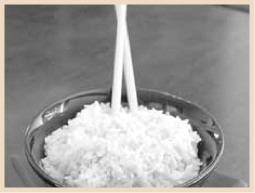
Todd Jay Leonard, Blog


Every culture has superstitions that are embedded into its people's psyches. The United States certainly has many superstitions. Whether it is "knocking on wood" for good luck or "blessing" another person who sneezes, we often unconsciously adhere to certain superstitions that have been passed down from generation to generation.
Japan is no different. Many of America's superstitions were brought to its shores by immigrants from much older cultures; Japan's superstitions, on the other hand, are largely homegrown, in some cases dating back to time immemorial.
Death, and superstitions related to death, has prominence in most cultures. For instance, few Americans would ever dare walk under a ladder for fear of creating bad luck for themselves. Do you know where this superstition comes from?
Most likely, this superstition probably originated in medieval Europe when people were regularly hanged to death as a punishment for serious crimes. The condemned was forced to walk under a ladder when taken to the gallows where the hanging took place; the executioner then would climb the same ladder to cut the noose after the execution. For obvious reasons, people were a bit squeamish about walking under a ladder due to this ominous association.
Likewise, but for entirely different reasons, Japan has a wide variety of "death" related superstitions. These are quite different from our own, but equally important in that the majority of Japanese people adhere to these naturally and often unconsciously.
One example has to do with passing food from person to person using chopsticks. A Japanese person would never do this under any circumstance. And if it were ever done unwittingly by foreign visitors in the presence of a Japanese national, I'm sure the Japanese person would gasp out loud in utter horror.
The only time that Japanese people ever have the occasion to pass anything from chopstick to chopstick is at a cremation ceremony for someone who has died. After the body is incinerated, family and close friends congregate around the skeletal remains and ashes to assist in collecting the vestiges of the deceased person.
The closest family members, using disposable chopsticks, pick up the skull, pelvic bone, arms, and legs together to place them in an ornate box. Each person present then takes a turn to pick up a remaining bone to place it reverently into the box.
Most Americans are unaware that a cremated person's bones do not burn, but are largely intact when the body is pulled from the cremation oven. Later, American crematoriums pulverize the bones, mixing them with the ashes from the body and wooden casket. In Japan, the bones are never crushed, but gathered up and preserved as they are.
This Japanese custom of gathering a loved one's bones after the cremation is called "watashibashi." Hence, the only time someone exchanges something with another directly with chopsticks in Japan is at a funeral.
The polite way to give someone a bite of your food is to first invert the chopsticks (using the ends that haven't touched your mouth) and gently place the offered food onto a small plate for the other person.
Sometimes foreigners in Japan commit another huge social faux pas by sticking their chopsticks into a bowl of rice instead of resting them politely on the edge of the bowl horizontally.
Again, this breach of proper Japanese etiquette is also directly related to death because a bowl of rice that is offered to the soul of the dead at a Buddhist funeral is prepared in this way. This rice is called "makurameshi."
Unintentionally, sometimes foreign visitors offend Japanese diners by casually sticking their chopsticks upright in a bowl of rice without knowing the social protocol and cultural implications of doing such a thing. Needless to say, doing this will bring dinner conversation to a screeching halt, leaving the clueless foreigner wondering what just happened.
I found myself trying to understand a similar situation when I rented my first apartment in Japan. I had purchased a bed and when it was delivered, the delivery personnel were quite worried about its placement in the bedroom.
Before they would even bring the bed into the room, the two men went out onto the balcony, craned their necks to see where the sun was, had a short confabulation, then came in and gave me a "thumbs up."
I was thoroughly confused as to why it would make a difference where the bed was placed in the room. Little did I know that in Japan, it is very bad luck to sleep with your head to the north.
Again, this is a death-related superstition that all Japanese know and follow - just like Americans would have reservation about opening an umbrella in the house or be perturbed if a black cat crossed their path. In Japan, a corpse is always laid out with the head to the north. This is called "kitamakura" in Japanese. Luckily for the delivery people, I wanted the headboard on the south wall, making everyone happy.
I am sure they were shocked initially when they arrived because I lived on the fourth floor. The pronunciation of the number "four" in Japanese is "shi" which also sounds like "death."
Often, Japanese hospitals or high-rise buildings avoid having floors or rooms numbered "four" because of this association (just like some buildings in the U.S. don't have a 13th floor).
I, of course, was none the wiser when I moved into the apartment building on the fourth floor. Interestingly, though, for the longest time, there were no other tenants on my floor until the entire rest of the building had filled up and only fourth-floor apartments were available.
Although the superstitions between the U.S. and Japan are quite different based on cultural, religious, and historical considerations, both countries have similar intentions in trying to avoid any potentially unlucky situations.
No matter where you come from, superstition is an ingrained part of a person's cultural and social upbringing. My next column will continue this theme and discuss superstitions in Japan relating to numbers and days.
By TODD JAY LEONARD
Columnist
Superstitious customs
Be careful not to commit social suicide with chopsticks
Monday, July 31, 2006







